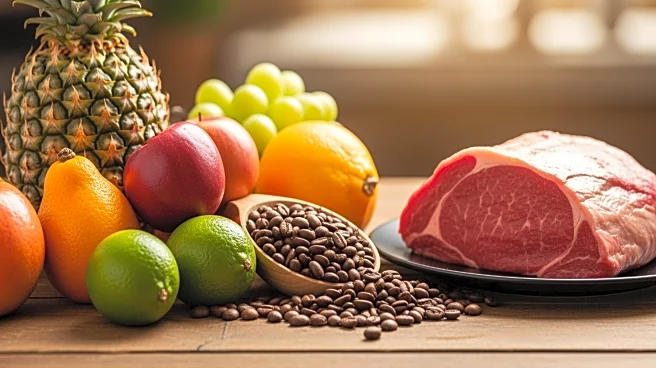What's Happening?
President Trump has signed an executive order to remove tariffs on various commodities, including beef, coffee, and tropical fruits. This decision comes in response to consumer complaints about high prices,
particularly following recent off-year elections where economic concerns were a major issue. The tariffs, initially imposed in April, have been criticized for contributing to record-high beef prices, especially from Brazil, a significant beef exporter. The order also affects other products like tea, fruit juice, cocoa, spices, bananas, oranges, tomatoes, and certain fertilizers, some of which are not produced domestically. Trump announced framework agreements with several countries to ease import levies on agricultural products.
Why It's Important?
The removal of tariffs is expected to alleviate pressure on consumer prices, potentially benefiting American consumers by lowering costs for essential goods. This move could also impact international trade relations, particularly with countries like Brazil, Ecuador, Guatemala, El Salvador, and Argentina, which are involved in the new agreements. The decision reflects a shift in policy that may influence future trade negotiations and economic strategies, especially as the administration responds to voter concerns about the economy.
What's Next?
The executive order may lead to changes in import patterns and pricing strategies for affected commodities. Stakeholders, including agricultural producers and importers, will likely adjust their operations in response to the new tariff landscape. Additionally, political leaders and trade analysts will monitor the impact on consumer prices and economic indicators, assessing the effectiveness of this policy change in addressing voter concerns.








